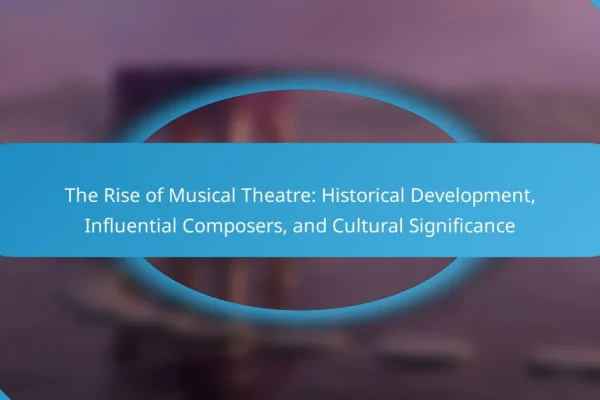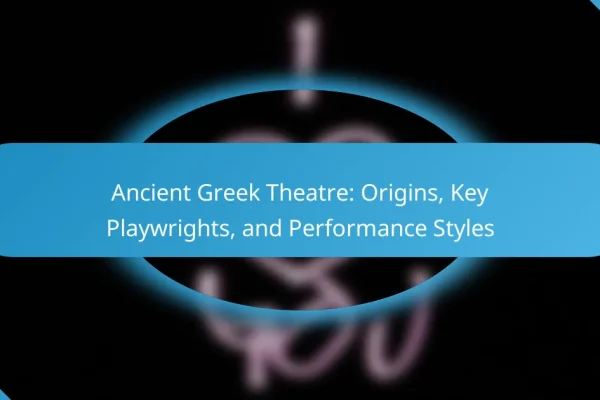
The Impact of War on Theatre: Historical Context, Themes, and Notable Productions
The article examines the impact of war on theatre, focusing on how historical events shape themes, styles, and production practices within the performing arts. It highlights the emergence of Absurdist theatre in response to the chaos of World War I and II, as well as the influence of war on minimalist staging due to resource…







